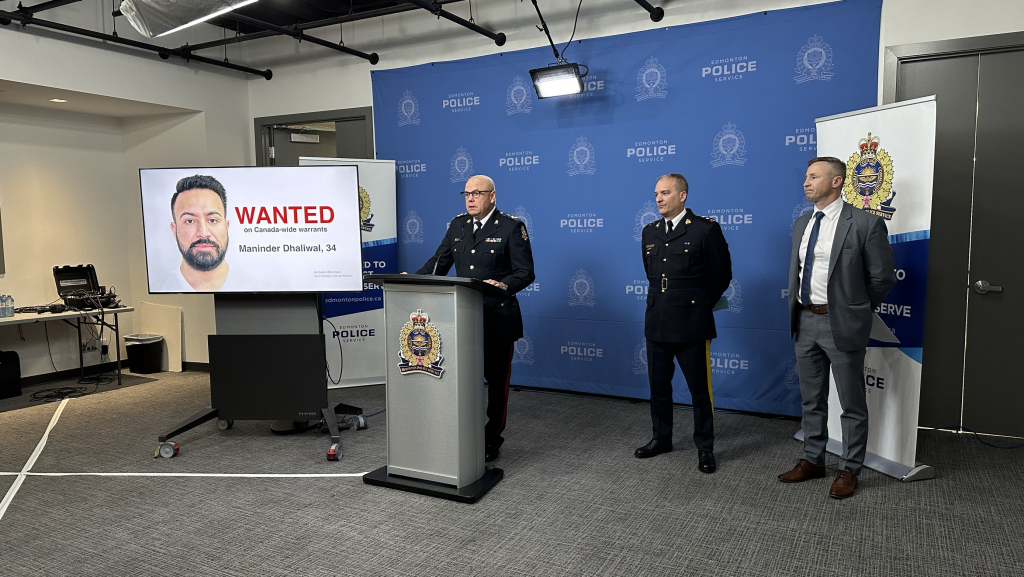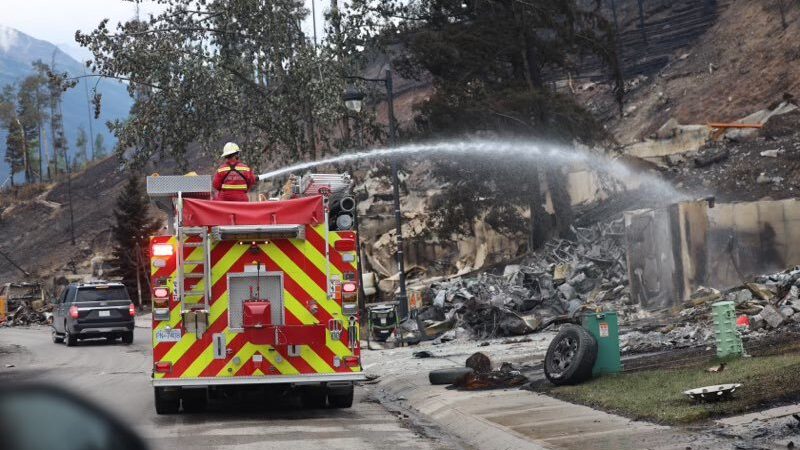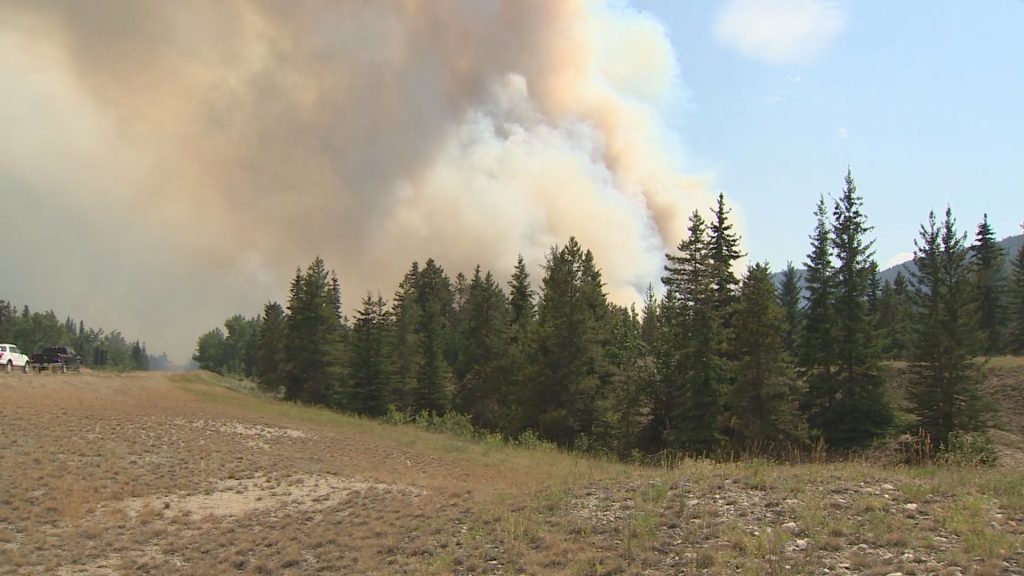Former vaccine hesitant mother shares story hoping others come ‘Back to the Vaxx’
Posted February 2, 2023 1:25 pm.
Lydia Greene still remembers the things people would tell her about not vaccinating her children.
“I’ve been told, do you want my daughter to die?”
In the last three years, the Alberta mother has brought three children up to date on their immunizations after 12 years of being a self-proclaimed “anti-vaxxer.”
Greene hopes by sharing her story of how a once quality control chemist for a pharmaceutical company could become so vaccine-hesitant, it can help the medical community better understand how to talk to parents about their vaccine hesitancies.
“I may have been exposed to some anti-vax stuff, but I had a background in science before I had kids,” she said. Greene’s first daughter was born in 2008. Before that, “I was a quality control chemist here in Edmonton.”
But after her daughter’s first round of vaccines, Greene was concerned about her daughter’s crying and reached out to a public health nurse.
“I felt embarrassed. She’s like, ‘You’re a first-time mom; it’s perfectly normal to be nervous, but this isn’t a big deal, and if you are really worried, just take her to the ER,’ and I didn’t really feel heard,” Greene told CityNews.

Lydia’s eldest daughter getting her COVID-19 vaccine.
Feeling brushed off, she turned to a Facebook group that previously helped her with breastfeeding.
“What they told me shook me to my core. They shared not only anecdotes but clips of the vaccine inserts describing my daughter’s reaction,” she said.
With hindsight, Greene can see that much of the data presented to her was cherry-picked or outright false. But at that moment, her anxiety led her to distrust the medical community. For over a decade, she resisted vaccinating her children.
“Instead of saying, ‘Oh, that just happens all the time, it’s normal.’ If they would have walked me through and asked, ‘Hey, have you ever had a tetanus shot? It’s quite painful. Your daughter is probably having a reaction to the pain.’”
Decline in childhood vaccines
In Alberta, vaccine hesitancy is a big factor in immunization rates.
“I would always like to see the immunization numbers higher than they are now,” said Dr. Chris Sikora, the Edmonton Zone Medical Officer for Health at Alberta Health Services. “It just demonstrates we have a continued amount of work to get those numbers higher.”
He also agrees with Greene about needing to change how to talk to hesitant parents about vaccines, noting there has been an effort to change how primary care teams talk to parents.
“These are things we are more than happy to work through with parents on a one-on-one basis,” he said.

Greene family photo.
RELATED:
- COVID-19 misinformation led to more Canadian deaths: report
- ‘Absurd conspiracy theory’ says misinformation expert on Hamlin-vaccine messages
- Spreading misinformation: Monkeypox, COVID-19 conspiracy theories follow similar patterns online
Back To the Vaxx
Lydia Greene is now the co-founder of Back to the Vaxx, a place for previously vaccine-hesitant parents to connect. She regularly speaks to experts about vaccines and the nuance of vaccine hesitancy. She is also the Canadian representative for Voices For Vaccines.
She is also in school to become a nurse, with the goal of working in public health in her home community in rural Alberta.
But what lead her to decide to get her children vaccinated?
“I had two more children that I didn’t vaccinate, and then COVID came around. And what astonished me about COVID was the hypocrisy,” Greene said.
Before the pandemic, Greene says social media forums would often point to the rise in modern sanitization and hygiene practices to explain the rapid decline in vaccine-prevented illnesses. She now knows it was a combination of vaccination and other health measures.
“But then none of them wanted to wear masks. None of them wanted to sanitize. I couldn’t marry those two ideas. We said this for so long, but then no one wanted to do these practices they said would prevent disease,” she said.

Lydia with one of her sons.
This, along with her concerns about a new virus impacting the health care system, had Greene considering vaccinating her three children and pushed her to look for scientific evidence around the best time to introduce certain vaccines.
“I believed this myth wholeheartedly, that the blood-brain barrier did not develop until the age of two or three. This is a very common trope in the anti-vax communities,” Greene explained.
But Greene could not find any data on this in the scientific literature, as all evidence shows the organ is fully developed before birth.
“I had to sit with that discomfort, and it was not fun. Knowing I fully believed something wholeheartedly and was wrong.”
She began slowly bringing her children up to date with their immunizations, one vaccine at a time.
Missed signs
But as she began distancing herself from the online forums she was once a part of, another difficult realization arose: she had missed early signs of autism in one of her sons.
“Stepping out of that world, I was able to look at him and realize, I missed out on something developmentally so important, and he was diagnosed at almost four years old with level 2 autism spectrum disorder,” Greene said.
In 2010, a British medical journal retracted a study they call flawed, that falsely linked the measles, mumps and rubella vaccine to autism. Even with numerous studies disproving this concept, the myth remains in some vaccine-hesitant communities.
READ MORE: Medical Journal Retracts Study Linking MMR Vaccine To Autism
“I don’t think I would have seen that had I stayed in that community. Because how could he have autism, he wasn’t vaccinated,” Greene continued.
“It was a very hard realization, but I’m so glad I was able to get out and get him the help he needed.”



Why speak out?
Greene admits speaking about her journey has opened her up to online vitriol, as vaccines have become an increasingly polarized topic. But she speaks out for those who have fallen victim to the misinformation.
“The anxiety that these women feel is astronomical. I talk because I hope that if they are at that point of being ready to let go, it’s okay. I want them to know it’s okay, and nobody is going to come out and say, ‘See, I told you so,’” Green said.
“You’re not going to lose everything; in fact, you’ll be able to breathe again. You’ll be able to just give your kid Tylenol when they have a fever instead of trying all these weird things.
“I want parents to know, that it’s okay to walk away. The world is not going to end.”








